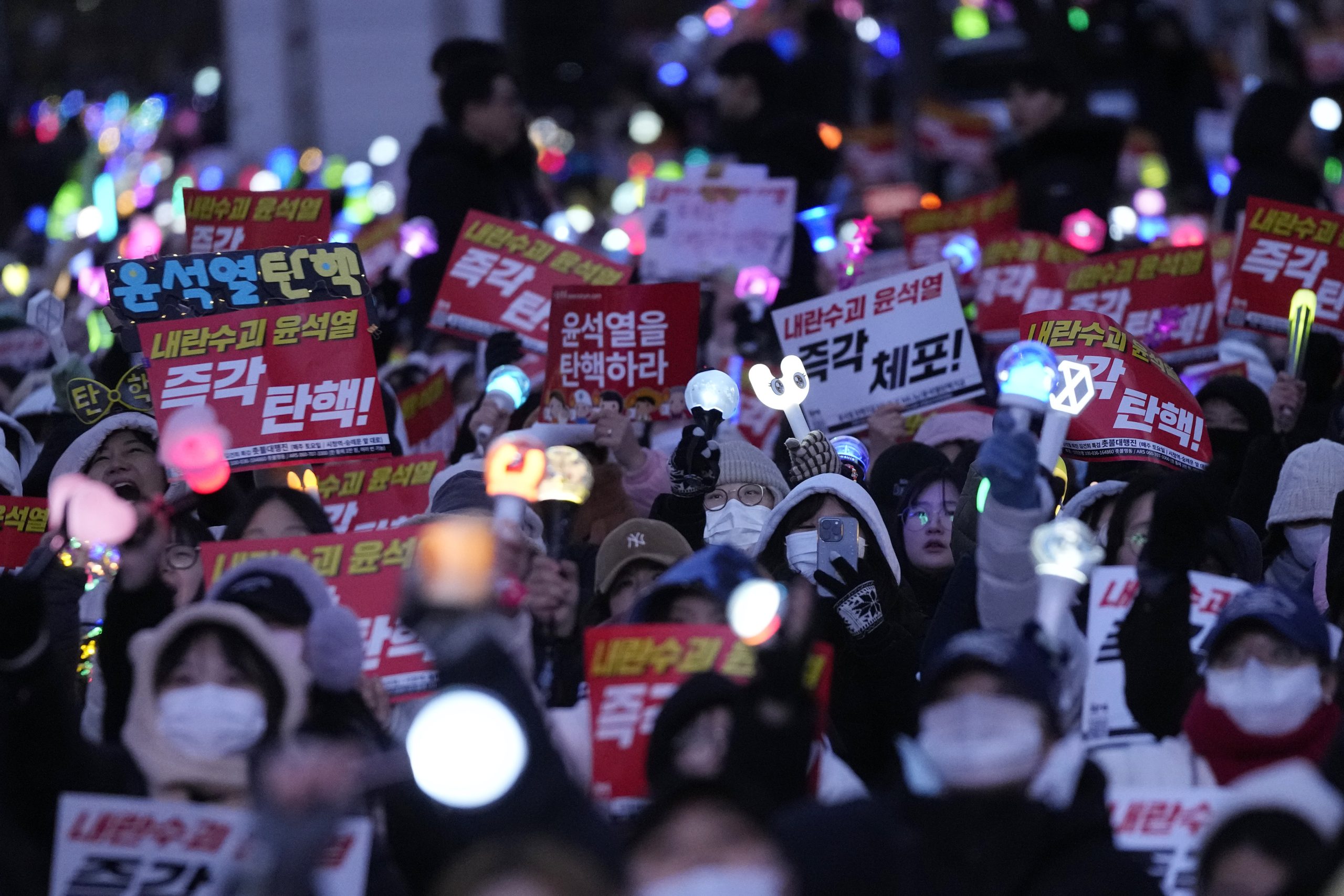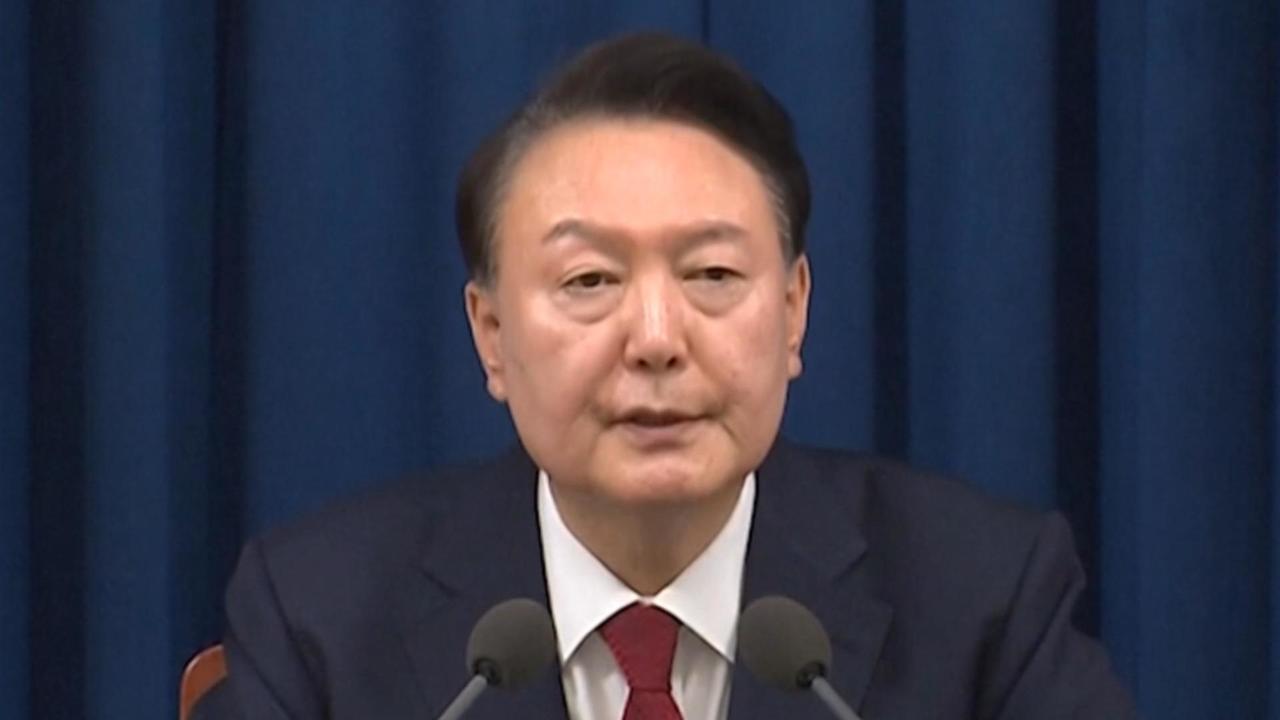In South Korea, the speed of political events has been overwhelming, with the media struggling to keep up. Last Tuesday night, President Yoon Suk Yeol attempted to impose martial law, but the move was so brief that it didn’t make the front pages of the newspapers.
By the time troops were dispatched, the press had already gone to print, and by the next day, the power grab had been defeated. This marked a dramatic shift in Yoon’s position, as he transitioned from being apologetic and trying to avoid impeachment to a more defiant stance, vowing to fight on despite increasing pressure.
Yoon now faces a second impeachment vote over the weekend and has been banned from leaving the country while under investigation for treason, a crime punishable by death. His support within his own party is weakening, yet he has shown no signs of stepping down. Protests have become a nightly occurrence, with thousands of South Koreans taking to the streets in anger. Meanwhile, there is growing concern over the power struggles within his party, and the situation has become more chaotic and uncertain as time passes.
At one point, it seemed as though Yoon had struck a deal with his party to step down early in exchange for avoiding impeachment. However, as the week progressed, it became clear that he had no intention of resigning. On Thursday, he appeared defiant, declaring he would fight until the end. His speech included conspiracy theories, such as suggesting that North Korea might have rigged the previous elections. Yoon defended his decision to declare martial law, claiming it was necessary to protect democracy and the people.

South Korea’s Political Crisis Deepens as President Yoon Faces Impeachment Amid Growing Protests
Throughout the week, Yoon remained mostly in hiding as police attempted to gather evidence by raiding his offices. To quell public anger, his party announced that he would no longer make decisions, although legal experts noted that there was no constitutional basis for this. Adding to the uncertainty, military leaders stated they would refuse to follow Yoon’s orders if martial law was attempted again. This situation has created a power vacuum, particularly concerning with the ongoing threat from North Korea.
Initially, members of Yoon’s party, the People Power Party (PPP), supported him, driven by political survival and a desire to block opposition leader Lee Jae-myung from taking office. However, by Thursday, the PPP leader, Han Dong-hoon, urged MPs to impeach the president.
To succeed, a two-thirds majority in parliament is needed, meaning that several members of Yoon’s party must join the opposition. Some MPs, like Kim Sang-wook, have already announced their intention to vote against Yoon, but many others remain loyal, despite personal threats and pressure from their constituencies.
The public’s anger has shifted to the MPs who have continued to protect Yoon. At protests, calls for Yoon’s impeachment have morphed into demands for the dissolution of his party. Lawmakers have been bombarded with threats and harassment, and some have even received funeral flowers. Even if Yoon is impeached, the PPP faces a difficult road ahead. Many within the party are questioning their political identity, and rebuilding trust with voters will be a long process.
This political crisis has also damaged South Korea’s international reputation and undermined Yoon’s ambitions for a more prominent role on the global stage. Western diplomats are eager for a swift resolution, as they need South Korea to remain a stable partner. If Yoon is impeached, he has indicated that he will challenge the decision in court, likely prolonging the political instability. The consequences of this crisis will have lasting effects on South Korea’s political system, potentially for many years to come.











































